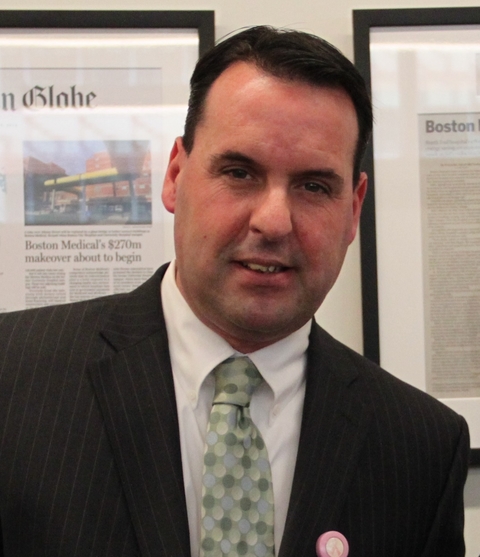Healthcare support employees often work behind the scenes to keep hospitals running and at Boston Medical Center, a key strategy in recruiting and retaining these workers is recognizing what they do.

David Maffeo, the hospital's senior director of support services, told FierceHealthcare in an interview that making note of what these "unsung heroes" are doing can reduce turnover and increase job satisfaction.
"In any business, especially healthcare, it's important to listen and recognize employees that work very hard for our patients ... especially in front of their colleagues," Maffeo said.
RELATED: Industry Voices—What one health system executive learned from shadowing frontline staff
Frontline workers, including support staff, nursing assistants and community health workers make up about half of the healthcare workforce, and the way they feel about their jobs can have a profound impact on care quality and patient safety.
The National Fund for Workforce Solutions has identified a number of benefits to providers that come from supporting and investing in these staff members, including:
- Improved community engagement.
- Better customer service, which boosts patient satisfaction.
- Workforce growth, and more well-rounded employees.
RELATED: Hospital Impact—To boost care quality, engage frontline staff
Maffeo said that support initiatives can become "infectious," and that hospitals that make it clear they appreciate the work of support and frontline staff can leverage that to improve recruitment and retention.
BMC, which includes 500 staffers across a number of support departments, including housekeeping, interpreter services and food services, recently chose to recognize the work these employees do in a new way. Previously, each group was honored separately—during "housekeeping week," for example. But in January, leaders of support teams gathered them all together for a bigger celebration.
Maffeo said that all the departments came together for an event that included some giveaways, games and leaders of each department serving the refreshments. Not only was it fun, it "enhanced their work together," he said.
And that filters to other areas of the hospital, Maffeo said. BMC has more than 5,000 employees overall, and when those people see that the hospital is taking time to engage frontline staffers, it enhances the "small community" within the hospital walls.
RELATED: Hospital Impact—To make a difference, listen to frontline healthcare workers
Since many hospitals are anchor employers that provide a large portion of the jobs in their communities, recognition programs help with recruitment efforts, as well. Positive engagement can create a "funnel" for potential new hires, Maffeo said.
"Most of our employees are from the Boston area," he added. "Friends and family know they work here—and they'll talk to them about it."
The staff recognition event in January was such a success, Maffeo said, that the leadership team is already looking for ways to build from it. One possibility, he said, is moving from a big, annual event to quarterly events to recognize the work of staff members.